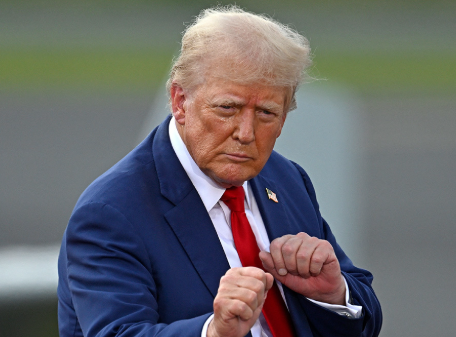The US State Department announced it would suspend some sanctions against Syria for 180 days.

The United States is suspending sanctions against Syria imposed in 2019 for 180 days, US Secretary of State Marco Rubio announced. His words were quoted by the State Department press service.
The sanctions in question are those adopted under the Caesar Act. The waivers will facilitate the provision of electricity, improve sanitation and water supplies, and allow for more effective humanitarian aid throughout Syria, the department said in a statement.
"Today's actions represent the first step in realizing President [Donald Trump's] vision for a new relationship between Syria and the United States. President Trump is giving the Syrian government an opportunity to promote peace and stability both within Syria and in its relations with its neighbors," Rubio said.
According to him, Trump "has made clear his expectation that aid will be followed by swift action by the Syrian government on important policy priorities." The exception is made to ensure that sanctions do not prevent Washington's partners from making investments that promote stability and advancing Syria's recovery and reconstruction efforts.
In 2019, US President Donald Trump signed a new executive order expanding sanctions against third parties who "obstruct a political solution to the Syrian conflict." In June 2020, the Caesar Act came into force, codifying and expanding existing restrictions against Damascus's allies. The law allows for secondary sanctions against foreign individuals and companies for supporting the Assad regime. It prohibits "significant financial, material, or technological support" and participation in a "significant transaction" with the Syrian government. It also restricts interactions with foreign nationals who are mercenaries or members of armed groups "operating in Syria on behalf of the government of Syria, the Russian Federation, or Iran." Specifically, sanctions may apply to foreigners who:
- provide Damascus with goods, services, technologies, information or other support that contributes to the development of the oil and gas industry;
- provide aircraft or parts for them that will be used for military purposes in Syria in the interests of Damascus;
- provide Damascus with services in the fields of defense, construction, or engineering technologies.
In January, The Wall Street Journal, citing sources, reported that the US presidential administration intended to ease restrictions on the delivery of humanitarian supplies to Syria for six months. The publication specified that the easing of restrictions would waive the requirement for special US government approval for the transfer of supplies, but would require a commitment to use the supplies only for their intended purpose.
The US Treasury Department previously issued a license authorizing transactions with certain Syrian individuals and entities previously blocked by Washington. These included Syrian Airlines, several banks, including the Central Bank, oil and gas companies, and President Abu Mohammed al-Julani.
Discussions about lifting decades-long sanctions against Damascus began after the overthrow of President Bashar al-Assad. On May 13, US President Donald Trump promised to lift sanctions on Syria and "give it a second chance." He said the restrictions against the country were "harsh and paralyzing," but had served an important purpose.
The day before, The Times reported that Syrian authorities could offer Trump an agreement on access for American companies to develop natural resources in Syria, similar to the Ukrainian deal, in order to secure the lifting of American sanctions.
The European Union also decided to lift sanctions against Syria following the change of power there.
ReadPIONERPRODUKT .by inTELEGRAM .




























































